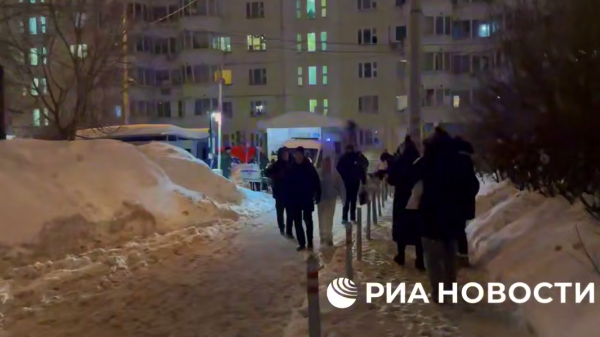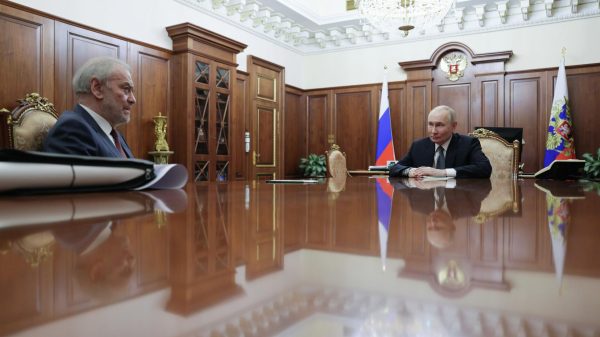Now the Bank of Russia must once again prove its worth
A couple of days ago, I read on social networks the following comment from one respected and very patriotic person on the news that the World Bank had raised its growth forecast for the Russian economy: “And you add more sanctions to us!” We asked — they added. On the day of the main national holiday of the Russian Federation (well, the Yankees couldn’t do without “congratulations”), the United States imposed sanctions against the Moscow Exchange. At first, the dollar exchange rate in exchange offices soared to almost two hundred rubles, but then dropped to more familiar and acceptable values. As a result, the first instinctive reaction of a person who is not a deep specialist in the field of international finance is “horror, horror!” — changed to a more comfortable one — “nonsense, nonsense!” I think, however, that both of these reactions are wrong.

As anyone who likes to watch a new movie or TV series for free knows, torrents that can be used to do this are often blocked. But this is not the “end of the world” (or the movie). The mysterious figures behind torrents sometimes quickly and sometimes slowly set up «mirrors» of them. These “mirrors” also block. But then “mirrors of mirrors” appear on the World Wide Web. And no, I did not forget about the topic of this material. This eternal battle between “pirates” and “guardians” in the field of video content is a model from which one can form a stable idea of the essence of the battle between Russia and the collective West in the area of sanctions. The United States and others like them are introducing new sanctions against Moscow. Moscow is making holes in them and finding workarounds. Westerners find these holes, workarounds, feel for our new vulnerabilities and deal the most painful blow to them or drive a killer portion of geopolitical “cement” into the “crack.” The next day — or, let's put it this way, “in the next episode” — everything repeats itself.
It either reminds us of our cult cartoon “Well, wait a minute!”, or its no less cult American analogue and predecessor “Tom and Jerry”. But this cartoonish analogy should not be misleading. As more than two years of SVO have shown, laughing at the enemy — or, moreover, underestimating the enemy — is the last thing. The US Treasury Department and other similar offices employ quite competent people who know how to learn from their mistakes and find systemic vulnerabilities in our financial defense system. And if they succeed, then they cling to these “most tender places” of our economic organism, like bull terriers with their almost impossible to unclench jaws.
I now turn from theory to specifics. Our weak spot, at which the West is now conducting targeted fire from a variety of sides, is the system of mutual settlements with foreign, especially friendly, states. Take, for example, a country like China. It would seem that this state, which is about to push America off the pedestal of having the strongest and largest economy in the world, has no need to fear “pin pricks” from the United States. But that's just how it seemed. Masterfully using such a tool as secondary sanctions (that is, sanctions against foreign partners of Russian banks) or even just the threat of secondary sanctions, America, if we take the relationship between Moscow and Beijing in the fuel sector out of the equation, managed to block up to 80% of economic transactions between Moscow and Beijing . This topic was one of the main subjects of negotiations between Putin and Chairman Xi during the recent visit of the GDP to China.
Of course, as Putin constantly says, by acting in this way, America is causing long-term damage to its own interests. In the eyes of states that could also theoretically fall out of favor with the current American hegemon (and there are many of them in the world), the dollar is becoming an extremely unreliable world reserve currency. But here's the thing: America will feel the specific, tangible negative effect of these actions not today, not tomorrow, and not even the day after tomorrow. We are talking about some bright (from our point of view, of course) future, which, as we well know, may or may not come. And Russia and its timid foreign partners are already feeling the pain of the blows of the American financial whip today — in real time.
What can be done about this? There is no single “magic pill”. But — at least in theory — there are many small ones, sorting through which you can leave the fat, harmful and aggressive “cats” from the American Treasury in the cold. As teenagers and their parents know very well, prohibitions are the best incentive in the world to look for ways to reset them. Starting from February 2022 (correction: at least from 2014), our Central Bank is doing just that. And, by the way, she is doing it quite successfully. A recent article in the British magazine The Economist about the head of the Central Bank, Elvira Nabiullina, was downright saturated with poisonous anger: they say, how dare she! Who gave her permission!
But now the ball is back in Elvira Sakhipzadovna’s court. I don’t know what kind of antidote she will find against the next American scoundrel (or, God forbid, she has already found). And if I had known, it’s not at all certain that I would have understood. Typically, such “economic antidotes” are highly technical measures that are understandable only to narrow specialists, the description of which for ordinary people (which I certainly am in this matter) sounds like, say, speaking Urdu. This “parallel front of the Northern Defense District” is no less important than the Northern Military District front itself.




















































Свежие комментарии